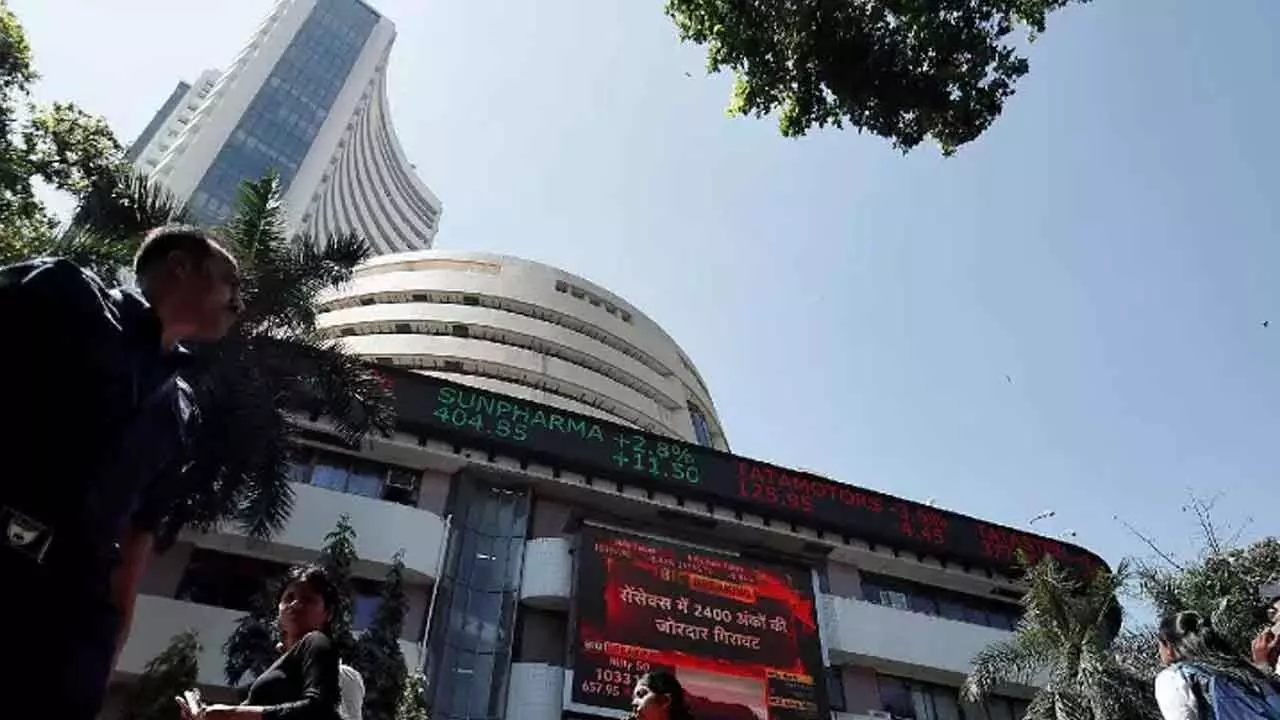Indian Markets Soar as Israel-Iran Ceasefire Calms Geopolitical Storm
Indian equity markets witnessed a robust rally of over 1% each for Sensex and Nifty on Tuesday, buoyed by US President Donald Trump's announcement of a ceasefire between Israel and Iran. This de-escalation has significantly improved investor sentiment and sent crude oil prices tumbling, a major boon for India's economy.
Indian Markets Soar as Israel-Iran Ceasefire Calms Geopolitical Storm

A palpable wave of relief swept across Indian financial markets this Tuesday morning, propelling both the Sensex and Nifty to significant gains of over 1% each. The surge mirrored a positive trend observed across Asian bourses, as investors eagerly embraced a renewed risk appetite following the pivotal announcement by US President Donald Trump: a ceasefire agreement between Israel and Iran.
In early morning trades, the benchmark BSE Sensex surged by a remarkable 851.66 points, or 1.04%, to reach 82,748.45. Similarly, the Nifty 50 climbed 256.15 points, or 1.03%, hitting 25,228.05. This strong opening marks a stark contrast to recent trading sessions, where the Nifty had seen declines in four out of the last five days, largely due to mounting geopolitical anxieties.
The positive sentiment resonated across Asia, with major indices reflecting the newfound calm. South Korea's KOSPI advanced a substantial 2.08%, Hong Kong's Hang Seng rose 1.94%, Japan's Nikkei climbed 1.07%, and China's Shanghai Composite jumped 1%.
"The dramatic developments in West Asia culminating in President Trump’s announcement of a ceasefire indicate that the worst of the conflict is over," remarked V.K. Vijayakumar, Chief Investment Strategist at Geojit Investments Ltd. "The sharp reactions in the crude oil and stock markets suggest the geopolitical situation limping back to normalcy."
President Trump's declaration, made on his Truth Social site, confirmed a "complete and total ceasefire" between the two nations. He lauded both Israel and Iran for their "Stamina, Courage, and Intelligence to end, what should be called, ‘THE 12 DAY WAR’." This surprising diplomatic breakthrough quickly alleviated fears of prolonged conflict and its potential to disrupt global energy supplies.
The immediate and most tangible impact of the ceasefire was seen in crude oil prices, which plunged significantly. West Texas Intermediate (WTI) oil futures dropped to $66.50, while Brent crude also fell back towards $70 per barrel. This decline is particularly favorable for India, a net oil-importing economy, as lower crude prices translate directly into reduced import costs and a more stable macroeconomic environment.
"Markets appear to be shifting towards a bullish bias, supported by a drop in WTI oil futures to $66.50, hinting at potential de-escalation in Middle East tensions," noted Prashanth Tapse, Senior VP (Research) at Mehta Equities Ltd.
The positive momentum was broad-based across Indian markets, with all sectoral and broader market indices trading in the green. The Nifty Midcap 100 rose 0.71%, and the Nifty Smallcap 100 gained 0.67%, indicating a healthy participation across market segments. Among sectoral indices, Nifty Auto surged by 1.37%, and Nifty Oil & Gas rose 0.87%, reflecting the direct benefits of reduced oil prices and improved economic outlook.
Top performers on the NSE in early trades included Adani Ports, which gained 3.61%, Shriram Finance (up 2.77%), Mahindra & Mahindra (2.3%), Ultratech Cement (2.19%), and JIO Financial Services (2%).
Analysts now anticipate that the Nifty, which had been confined to the 24500-25000 range, will decisively break out on the upside. However, the sustainability of these higher levels could hinge on upcoming developments on the trade front. Vijayakumar highlighted, "Since the pause on the reciprocal tariff ends on July 9, bilateral trade agreements have to happen before that. Therefore, markets are likely to respond to developments on the trade front."
For investors seeking opportunities, Vijayakumar suggested focusing on "reasonably valued domestic cyclicals like financials, aviation, telecom, and capital goods where safety is higher." The current market sentiment underscores the profound impact of geopolitical stability on investor confidence and economic prospects.

